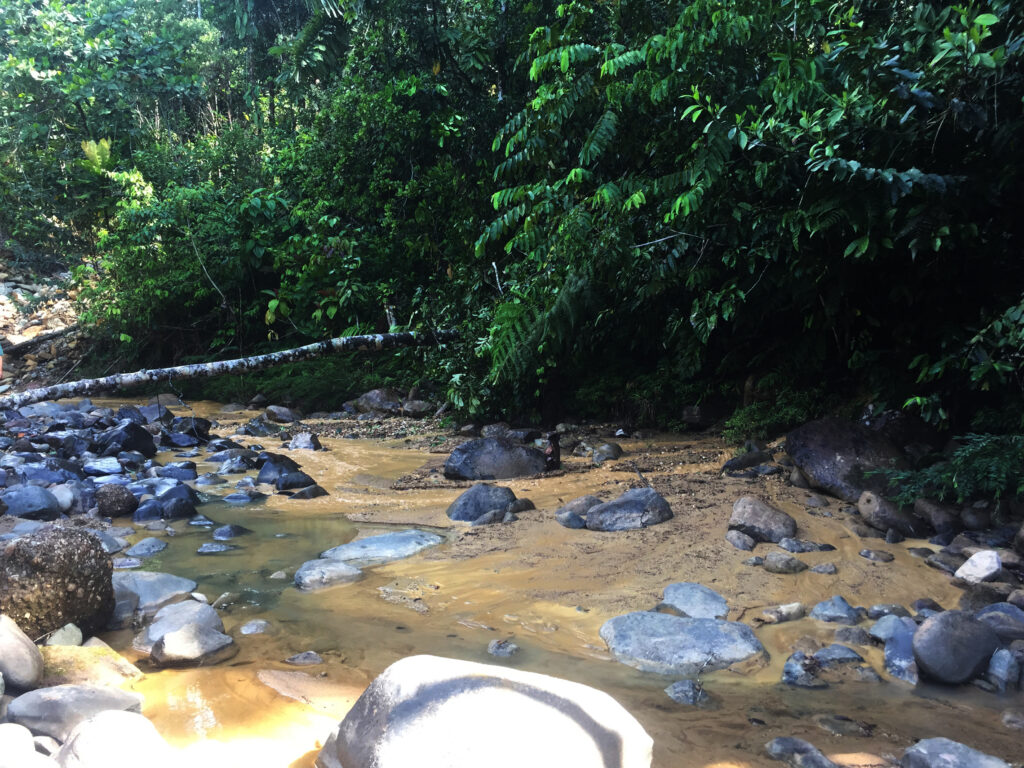Sharing Complex Histories of Conservation
The 2022 Shannon Lecture Series’ theme “The Management of Natural Resources and the Environment in Canada: Historical and Transnational Perspectives” intersects with the research of its convenor
By Nick Ward
Running from May through July, the Shannon Lecture Series for Spring 2022 explores the many ways in which natural resources and the environment in Canada have been managed throughout history.
According to Shannon Series convenor and History Ph.D. candidate Stephen Osei-Owusu, there’s no time like the present to discuss the connections between Earth’s human and non-human inhabitants, and how these relationships have historically been governed, conserved and contested.

“I am excited about this year’s Shannons because, as a keen enthusiast of researching the environment and learning how it has been central to humankind’s relations with each other since antiquity, I believe audiences will leave with a better understanding that our historical experiences in the use and management of the environment are steeped in pre-colonial, colonial and postcolonial socio-political relic,” Osei-Owusu says.
According to Osei-Owusu, this has in turn “shaped present local and globalized frameworks in managing environments.”
The 2022 edition of the Shannon Series, titled “The Management of Natural Resources and the Environment in Canada: Historical and Transnational Perspectives”, brings together three seasoned historians and an expert in fishery conservation to unpack the transnational nature of global historical experiences relative to people’s use – and misuse – of the environment.
The Shannons are a series of thematically linked public lectures held annually since 2010 by the Department of History and made possible through the Shannon Donation, a major gift from a long-time friend of the Department of History at Carleton. Previous topics include Human Rights in the History of Canada (2020), Rebooting Biography (2019), and Bad Archaeology (2018).
The theme of this year’s Series relates to Osei-Owusu’s own research on the history of environmental protection regulations in Ghana’s gold mining industry (formerly called the Gold Coast) between 1874 and 1957.

“I study the period in which Ghana was a colony of the British and how the question of Indigenous societies and their pre-colonial ecological perspectives fared in such an entrusted political arrangement,” explains Osei-Owusu.
“With Canada being a former colony of the British, with significant Indigenous population presence, I believe that there are a lot of historical context-based takeaways – both in similarities and disjunctions – that can partly inform the general thrust of my research.”
Through his research, Osei-Owusu is already discovering meaningful and representative lessons that illuminate the consequences of Britain’s past involvement in Ghana’s mining industry on today’s postcolonial protection efforts.
Perhaps unsurprisingly, he has found – as corroborated by Ghana’s Environmental Protection Authority – that prior political administrations, including colonial ones, did not take the issue of environmental protection and management seriously enough.
Osei-Owusu says that this is particularly evident when looking at the country’s current regulatory frameworks, which largely focus on voluntary initiatives in environmental protection efforts (with preference for initiatives fueled by neo-liberal private capital) and pay little attention to the interests of resource-rich indigenous and local communities themselves.
“In the absence of global frameworks on environmental protection regulation – which is a recent phenomenon, as of only the late 1960s and early 1970s, just around the period of decolonization for many of the former African colonies – to engage the environment, the concept of environmental protection in many colonies was reduced to the discretionary powers and actions of former colonial powers,” he explains.
“In the end, the clash of perspectives often were conducive pretexts for European land-grabbing practices in Indigenous communities.”
Osei-Owusu argues that local and Indigenous ways of governing and regulating – which emphasize religious and cultural attachment to nature, as well as communal ownership and protection of the environment –must be brought back into the conversation after having long been considered ‘taboo’ by colonial powers.

He gives the example of how “environmental regulations and practices in gold mining once reflected the spiritual-eco-centric dimensions of Indigenous knowledge production, where they evolved through the historical interaction of communities and their environment, thereby giving rise to practices and cultural landscapes such as sacred forests and groves, sacred corridors and a variety of ethno-forestry practices.”
As a result, Osei-Owusu explains, “among the Adanse (the ethnic group in the principal gold-producing area of Obuasi), and many other Akan gold-producing areas, gold was regarded as a spirit, which could be offended by human actions, inclusive of which was environmental destruction.”
“Due to this, it is believed gold, as a spirit, could travel from place to place, especially when certain customs or rituals regarding respect and veneration of the land had been flouted.”
As we find ourselves trying to build a sustainable future in the midst of a climate crisis, the 2022 Shannon Lecture Series on The Management of Natural Resources and the Environment in Canada: Historical and Transnational Perspectives serves as a reminder to heed those spirits.